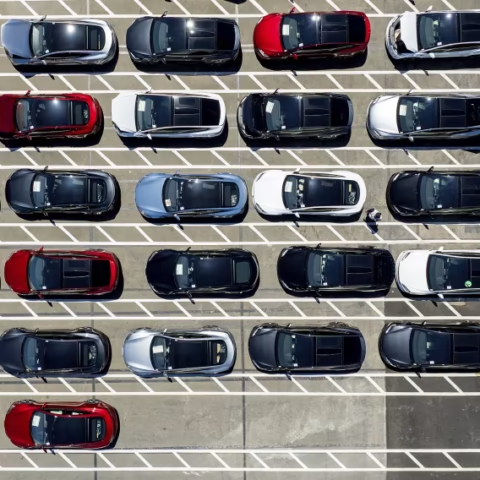Rental giant Hertz Global Holdings has decided to sell approximately 20,000 electric vehicles (EVs), including Teslas, from its U.S. fleet, signaling a shift away from its initial plan to convert 25% of its fleet to electric by the end of 2024.
The move comes amid rising expenses related to collision and damage for EVs, especially Teslas, as acknowledged by Hertz CEO Stephen Scherr, who highlighted the challenges at the JPMorgan Auto Conference last year.
Challenges and Cost Concerns Impacting EV Growth:
Hertz’s decision adds to the challenges facing the electric vehicle market, with concerns about slowing sales growth affecting carmakers like General Motors and Ford.
Morgan Stanley analyst Adam Jonas notes that Hertz’s move underscores the need to “reset downward” expectations for EVs. While consumers appreciate EVs’ driving experience and fuel savings, hidden costs, such as collision and damage expenses, remain significant.
Hertz Expects $245 Million in Charges Related to EV Sale:
Hertz anticipates approximately $245 million in charges related to depreciation expenses resulting from the sale of its EVs in the fourth quarter of 2023.
The company had initially planned to order 100,000 Tesla vehicles by the end of 2022 and 65,000 units from Swedish EV maker Polestar over five years.
Despite the shift away from EVs, Hertz is committed to improving profitability for the remainder of its EV fleet.
Used-EV Prices Decline Amid Rising Inventories:
The decision comes as wholesale used EV prices experienced a decline throughout 2023 due to falling prices for new EVs and increased inventories of unsold electric vehicles.
Cox Automotive data indicates that used EV prices will continue declining in 2024. Hertz’s move to sell 20,000 EVs, including Tesla Model 3 units priced as low as $20,000, contributes to the trend of falling used EV values.




















